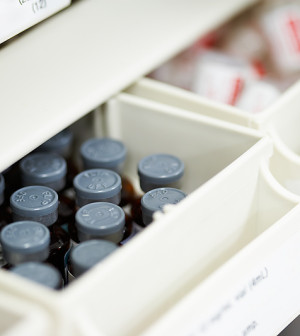- Cyberattack Cripples Major U.S. Health Care Network
- Cancer Patients Often Face Medical Debt, Even With Insurance
- One in 8 U.S. Adults Have Now Used Blockbuster Meds Like Ozempic
- Pushing the Body in ‘Extreme’ Sports Won’t Shorten Life Span
- Utah Kids Got E. Coli From Playing Around Lawn Sprinklers
- Getting Help for Alcohol, Drug Abuse Tougher for Rural Americans
- Outdoor Workers Face Skin Cancer Danger
- The Pros & Cons of Robotic Knee Replacement Surgery
- Oral Rinse Might Alert Doctors to Stomach Cancers
- Telehealth Tougher When English Isn’t First Language
Mice Study Sees Link Between Gut Bacteria, Immune Cell Production


Gut bacteria influence the production of immune cells that act as the first line of defense against infection, a new mouse study finds.
If validated in humans, the findings eventually could lead to new therapies to sustain and increase people’s immune function, according to the researchers from Cedars-Sinai Medical Center in Los Angeles.
Experts note, however, that results achieved in animal studies often aren’t able to be replicated in humans.
Previous studies found that gut bacteria affect immune cell activity, but it wasn’t known if they also played a role in immune cell production.
This new research found that immune cell production was defective in mice that lacked gut bacteria. These mice were more likely to develop bacterial infections. The investigators said immune cell replenishment is necessary to fight infection.
“We now have a clearer understanding of how gut microbes influence immune cell production, which has implications for immune defense against infection,” study co-author Helen Goodridge, an assistant professor in the department of biomedical sciences at Cedars-Sinai, said in a center news release.
The study findings, published March 12 in the journal Cell Host & Microbe, also suggest that antibiotics may harm the immune system by reducing gut bacteria and thereby affecting immune cell production. This could put a person at increased risk for future infections and disease, added the study’s co-author, Alberto Yanez, a postdoctoral scientist in Goodridge’s laboratory.
“Gut microbes play very important roles in maintaining human health and this study further highlights the risks associated with the overuse of antibiotics that indiscriminately target helpful, as well as harmful, bacteria,” Yanez said in the news release.
More information
The U.S. National Institutes of Health has more about the bacterial makeup of the body.
Source: HealthDay
Copyright © 2024 HealthDay. All rights reserved.










